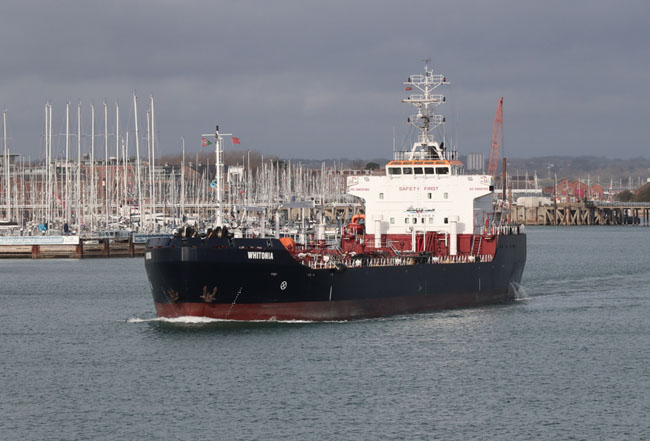The transport secretary has chaired the first meeting of a new Maritime Council, the first step in untangling what MPs have called the ‘muddle’ of 184 recommendations in the Government’s Maritime 2050 strategy.
The Department for Transport (DfT) said the new body brought together figures from across the sector and has been established in a pivotal period as the maritime sector prepares itself for a net zero future.
It said the council will drive delivery of the recommendations set out in the Maritime 2050 strategy and focus government and industry’s shared priorities as it aims to grow a sector that is vital to the flow of goods and services in and out of the country.
The first meeting, on Wednesday, was chaired by transport secretary Mark Harper, with subsequent meetings to be chaired by maritime minister Baroness Vere.
She said: ‘It’s not just for government to set out a plan, it has to be something that all parties can make a reality.
‘Collaboration with the industry will help deliver our shared Maritime 2050 vision, revolutionising the UK’s relationship with other countries, to grow and upskill the maritime workforce and advance our world class safety standards.’
The DfT said the council will look at how to deliver clean maritime growth, and how economic and environmental benefits can converge to bring forward a futureproof maritime sector.
The new body was one of a number of actions put forward by the DfT in response to a report from the Transport Select Committee on progress with the Maritime 2050 strategy, which was published by the Government in January 2019.
Among the headline recommendations of the committee’s report, it called on the DfT to work with industry to review and streamline the ‘muddle’ of 184 recommendations it set itself in the strategy.
Ministers said an updated Clean Maritime Plan to decarbonise the sector will be published later this year, with ‘indicative targets’ and a ‘road map’ for how to achieve zero greenhouse gas emissions by 2050.

Febuary 2023: The oil products tanker MV WHITONIA heads out of Portsmouth harbour
However, the DfT said it was unwilling to commit, beyond 2025, to long-term investment in UK SHORE – a programme of investment in infrastructure projects focused on shore-side electrical charging.
The Government also rejected MPs’ call to bring forward its promised Seafarers’ Welfare Charter as soon as possible and make it mandatory for UK operators. MPs argued that this was necessary to hold employers to high standards and support seafarers’ mental health, and that the Government’s current plan to ask operators to sign up voluntarily won’t be enough to protect seafarers.
The Dft said it will ‘initially’ launch the Charter on a voluntary basis, monitor firms’ uptake of its provisions, and ‘actively keep under review the need for further legislation’.
Committee chair Iain Stewart MP said: ‘If the Government wishes to be a leading maritime force it needs to invest in its people both in terms of skills and welfare. The committee recommended that the Seafarers’ Welfare Charter be mandatory; it is a shame that ministers are still committed to making this voluntary.’
Register now for full access
Register just once to get unrestricted, real-time coverage of the issues and challenges facing UK transport and highways engineers.
Full website content includes the latest news, exclusive commentary from leading industry figures and detailed topical analysis of the highways, transportation, environment and place-shaping sectors.
Use the link below to register your details for full, free access.
Already a registered? Login